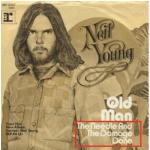The German edition of Medscape Medical News repo
Fentanyl
Let's have a round of zero applause for the New York State Department of Health for its June 24th publication to physicians, misnamed "Data to Action Opioid Prescribing in New York State." In a mastery of the self-evident, the authors reache
Join Cameron English and Dr. Chuck Dinerstein on Episode 75 of the Science Dispatch podcast as they discuss the latest development in illicit drug use:
Oregon voters passed Measure 110 in November 2020, which put an end to caging people who choose to consume drugs t
Last weekend, Senate negotiators announced a bipartisan compromise on a supplemental spending package that will create toug
The Centers for Disease Control and Prevention recently reported that in the 12‐month period ending last August, about 74,000 people died from fentanyl‐related overdoses
When we talk about Chinese exports to the U.S., the concern most often revolves around fentanyl and other highly addictive drugs or the loss of jobs and economic power.
A recent meeting between President's Biden and Xi focused on the enormous (and growing) fentanyl crisis in the U.S., which is being fueled by the export of the drug to Mexico, where it is illegally trafficked into the US.
For those of you who don't follow the details of the so-called "opioid crisis" (finally being appropriately named the fentanyl crisis), some of the terms, names, and groups (like PROP) may be unfamiliar. Here's a primer.
More than 90 Chinese companies openly sell fentanyl precursor to any willing buyer. Since 2018, cryptocurrency has been used to pay between $27 and $37 million for these materials.













